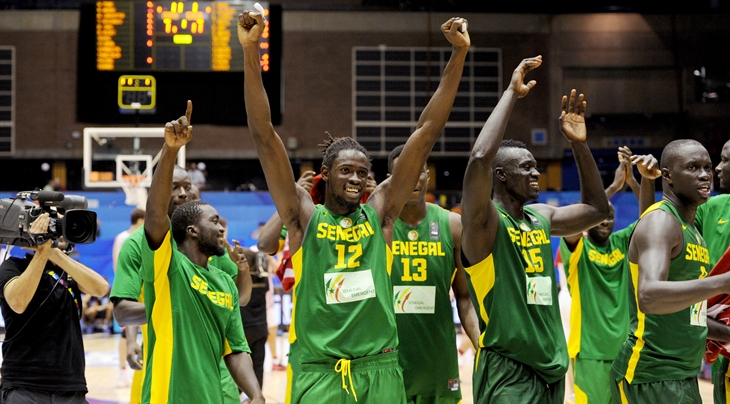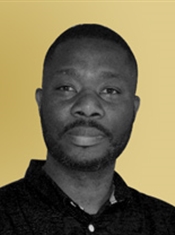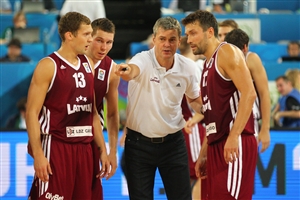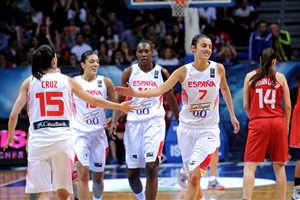
It's time to move on
SHEFFIELD (Julio Chitunda's African Message) - Looking back at 2014, it becomes clear that a lot needs to be done to take African basketball to the next level, although the future seems bright.
I can't deny that, moving forward, 2015 could be a year full of positive changes.
I'll talk about the new year later in this column, but first let me share with you a few notes that I learned in 2014 and could bring a new dynamic to the game on the African continent.
It is time to move on.
African Basketball authorities - usually former athletes who had relative success during their playing careers - should believe in the benefits of the game as much as the new generation of players do.
The officials had nothing to lose if they made the most of their popularity and credibility to approach investors and build new facilities, promote training camps, and prove to shareholders that basketball is in rise worldwide and it could be profitable.
Potential basketball investors should look at basketball as a business, instead of a leisure activity.
Over the course of the past decades, the recurrent argument that African basketball continues to fail on the world stage because it is not a priority in most African nations - where education, food and health need more attention - has collided with the desire of talented Africans who keep showing the world that they can be as successful as anyone else, regardless of the social issues back home.
It's just a matter of looking at basketball as a key tool to promote, educate and transform a country.
Surely, many sports fans worldwide would not have heard of places like Lubumbashi, Yaounde, Port-Gentil or Brazzaville if the likes of Bismack Biyombo, Luc Mbah a Moute, Stephane Lasme or Serge Ibaka would not have believed in their potential and put their places of birth on the international basketball map.
No one else could put it better than the late Nelson Mandela, former South African President, who said: "Sport has the power to change the world.
"It has the power to inspire. It has the power to unite people in a way that little else does. It speaks to youth in a language they understand. Sport can create hope where once there was only despair. It is more powerful than government in breaking down racial barriers."
It's been over three decades since African nations started to participate in the world competition as independent countries, but the results are taking too long to translate the real potential of African players.
This past summer, Senegal - coached by Cheick Sarr, a Physical Education teacher based in Dakar, Senegal - gave the world a glimpse of its real potential at the 2014 FIBA Basketball World Cup in Spain with a 16th place finish in the 24-team event.
Unlike their 1998 and 2006 appearances in FIBA's flagship event - in which they combined to win one game and lose 10 - the Senegalese won games and advanced to the Round of 16, finishing with a 2-4 record including wins over Puerto Rico and Croatia. It was Senegal's best-ever showing on the world stage.
And, one of the reasons behind their positive World Cup campaign has to do with the way the national team's General Manager Boniface Ndong - a former Senegal international who has never represented his country at a World Cup, but gained international acclamation for his club career in Europe - brought a team together.
Ndong shared his managerial wisdom with a talented group of Senegalese players spread around the world, and the result was promising.
Spain 2014 did not prove as successful for Egypt (0-5) and Angola (2-3), although the two nations realised how good and competitive they can become.
Egypt, for instance, has not wasted time, appointing Pepe Claros as the team's new head coach, suggesting the seriousness with which the Pharaohs' are looking at the future of the game in the country.
I feel that 2015 will be the year in which those who are taking basketball seriously - and being professional about it - will succeed and move forward on the continent, while the others will continue to struggle.
At club competition level, things are no different.
As I write this column, three of the four teams qualified for the Semi-Finals of the 2014 African Champions Cup in Tunis, Tunisia, displayed the team's sponsors on the jersey, a positive sign for the future of the game.
In sport, time has proven to be a good teacher, one which everyone involved should learn from.
Julio Chitunda
FIBA
FIBA's columnists write on a wide range of topics relating to basketball that are of interest to them. The opinions they express are their own and in no way reflect those of FIBA.
FIBA takes no responsibility and gives no guarantees, warranties or representations, implied or otherwise, for the content or accuracy of the content and opinion expressed in the above article.

















